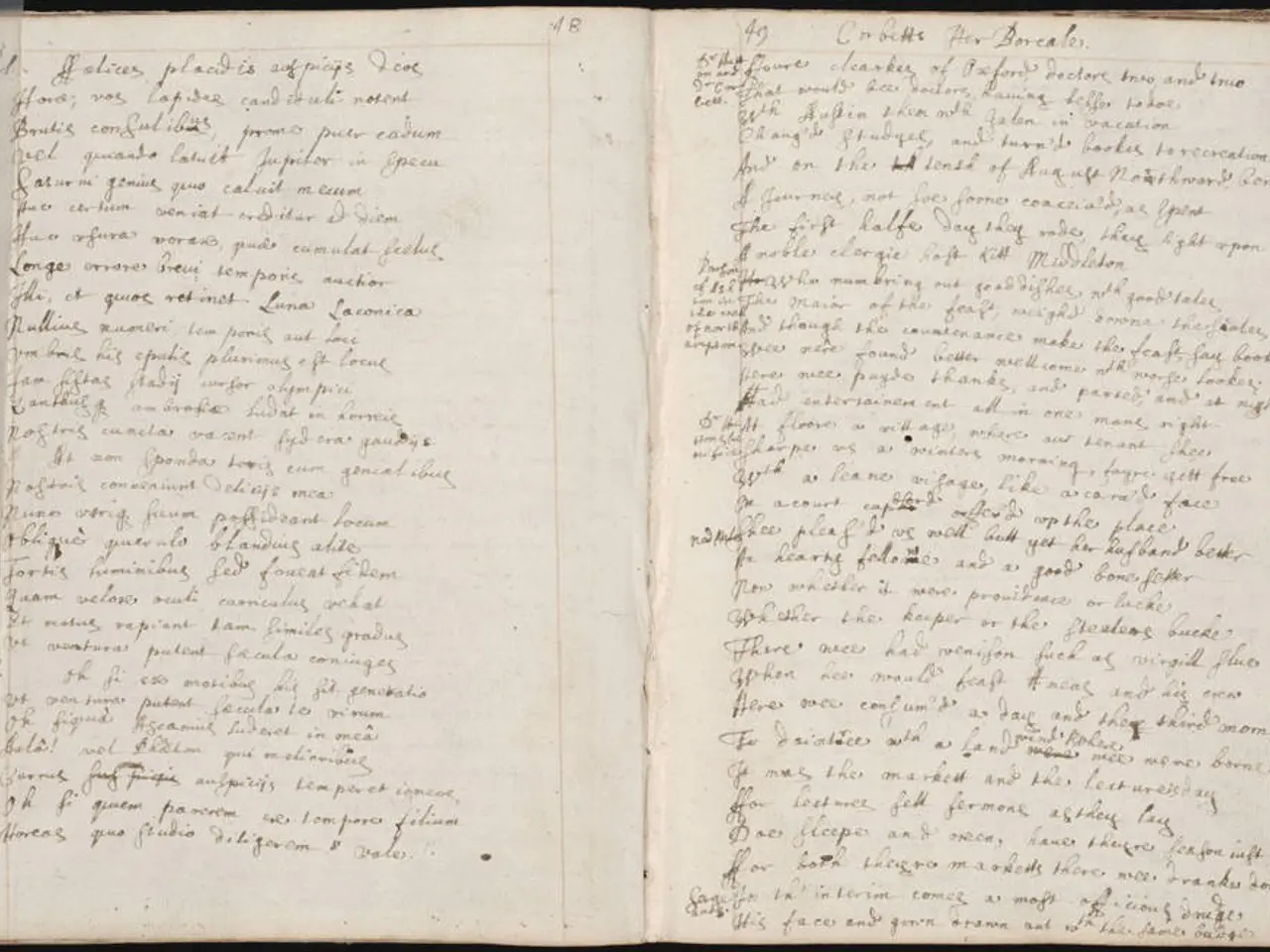For better clarity in academic writing, seek advice from a high school scholar.
In the heart of New York City, the Demystifying Language Project (DLP) is making waves in education, empowering high school students by connecting them with linguistic anthropologists. The project, co-directed by six interdisciplinary scholars, aims to make complex academic linguistic research accessible and relevant.
The journey begins with a thought-provoking question from Nelson Flores and Jonathan Rosa, authors of an essay for the DLP, "How would you feel if someone told you that you didn't know any language?" This question sets the tone for the project, challenging the traditional view of language and validating students' linguistic identities.
The DLP creates a collaborative environment where students learn that language is a form of social action, used to perform social functions and establish identity within communities. Through this lens, students better understand language politics, including how language standardization privileges some groups over others.
The three-day writing event brings high school and undergraduate students together with established anthropology professors. The authors work closely with students, explaining their intentions, discussing fieldwork, asking questions, and defining key words and ideas. The students, in turn, shape the final essays that appear on the DLP website.
The workshop is not just about making academic writing more accessible; it also changes the social dynamics of learning by flattening academic hierarchies. Students present their findings in the form of TikTok videos about the article they are transposing or their experience in the DLP. They deliver their own elevator pitches, and even vote for the winning pitches, making them the experts.
The workshop leads to new and empowering insights on language, education, and justice for students. Sharese King, author of an essay about language and power in legal contexts, analyses the trial of George Zimmerman, shedding light on the role of language in shaping justice. Athalia McCormack, one of the students, shares her excitement about working with an author and having her name on the article.
The workshop is inspired by the Central American social justice concept of "accompaniment," where everyone brings their own expertise to the shared project. It aims to break down academic hierarchies and make knowledge more accessible by recognising high school students as experts on their own reading.
The DLP is part of a larger research and social justice initiative. It concluded with a call for empathy towards undocumented students and immigrant children, emphasising the importance of understanding and valuing diverse experiences. The insights gained about language, culture, and power go beyond the academic content of the workshop; they come out of efforts to dismantle educational hierarchies that are reinforced through language.
In short, the Demystifying Language Project empowers students by demystifying academic linguistic research, making it relevant and digestible, and encouraging students as active participants who critique and reshape dominant narratives about language in education.
- The Demystifying Language Project, through its collaborative and hierarchically-flattened environment, fosters a culture of lifelong learning and education-and-self-development, where students not only absorb knowledge about language politics, but also contribute significantly to the shaping of such understanding.
- By encouraging active participation, questioning, and critiquing of dominant narratives, the Demystifying Language Project is not only about learning, but also about empowering students to become agents of self-development and change, advocating for justice and valuing diverse experiences.




